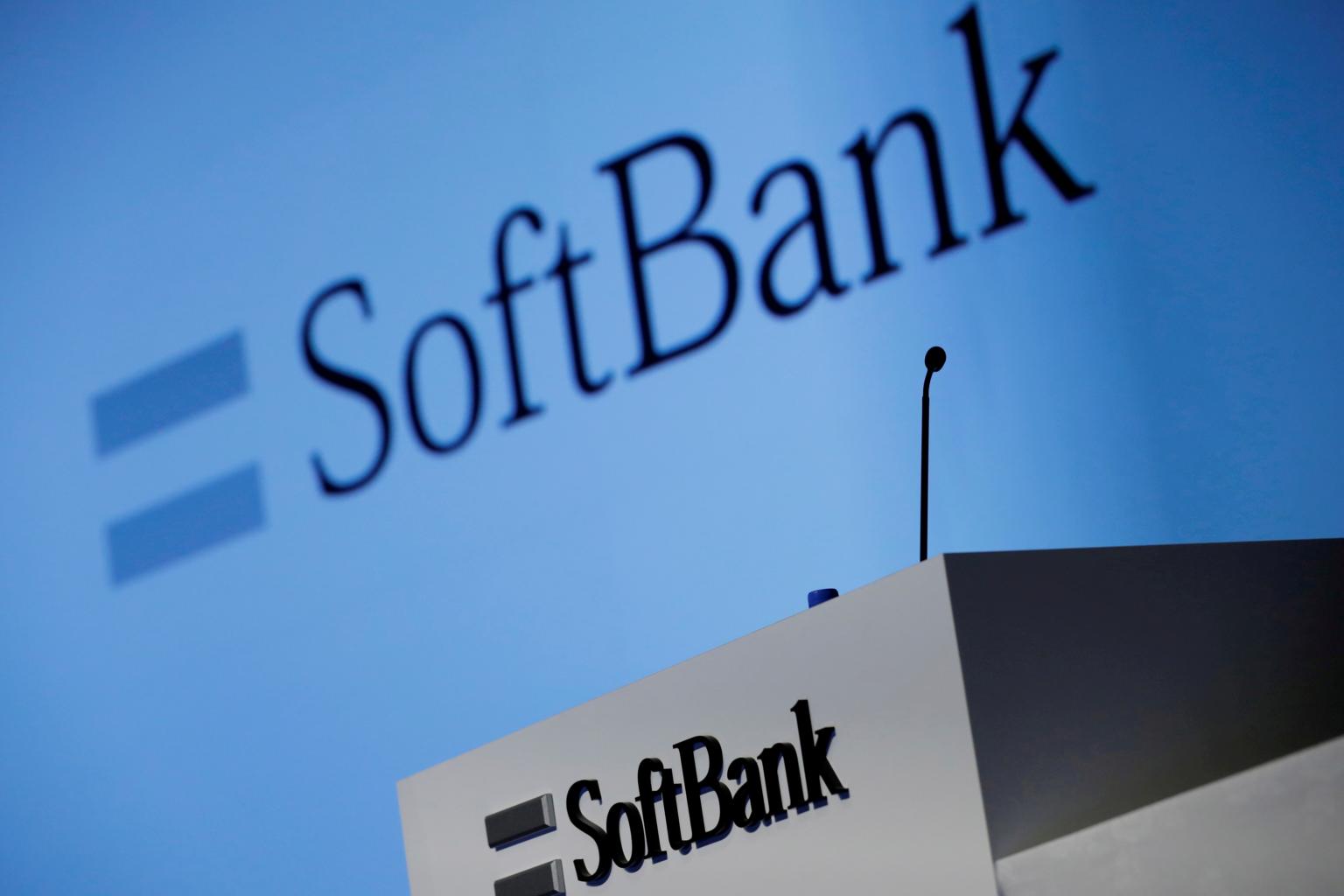SoftBank founder Masayoshi Son loses $34 billion in tech's brutal winter
Sign up now: Get ST's newsletters delivered to your inbox

Softbank's stock has tumbled almost 60 per cent in the past year.
PHOTO: REUTERS
Follow topic:
SINGAPORE (BLOOMBERG) - Mr Masayoshi Son, SoftBank Group's billionaire founder, checks the chart. Then again. Another time. And once more for good measure.
Lately it has only moved in one direction: Up.
It is not a chart of the firm's stock picks. Those are sinking fast. So too is Mr Son's fortune - it has crashed US$25 billion (S$34 billion) to US$13.7 billion in the past year, according to the Bloomberg Billionaires Index.
The chart is SoftBank's loan-to-value ratio, which Mr Son says he checks four times a day. It is key to how he staged his comeback over the past two decades after losing US$70 billion during the dot.com crash.
Just last year, SoftBank was flying high, borrowing against its wildly lucrative stakes in tech investments such as Alibaba Group Holding and plowing the money into the promising upstarts of tomorrow. Even when there were epic failures - Wirecard or Greensill Capital - profits elsewhere buried the problem.
Recently though, problems just keep piling up.
From China's tech crackdown to Russia's invasion of Ukraine, inflation to the markets, a litany of troubles has beset Mr Son and his conglomerate.
The stock has tumbled almost 60 per cent in the past year and the loan-to-value chart that Mr Son obsesses over daily just keeps ticking higher, indicating SoftBank's net debt is getting unwieldy relative to the equity value of its holdings. Some market watchers are flagging the risk of margin calls.
Mr Son, 64, acknowledges these are difficult times.
Last month, he described SoftBank as being "in the middle of a winter storm" and announced a 1.55 trillion yen (S$17.9 billion) decline to 19.3 trillion yen in the net value of the company's assets for the three months through December.
Since then, it has just gotten worse.
The market for new share sales, critical to SoftBank's success, has dried up. Didi Global sank a record 44 per cent on Friday after the ride-hailing company suspended preparations for a Hong Kong listing. In the latest sign that SoftBank is strapped for cash, its Vision Fund sold US$1 billion of shares in South Korean e-commerce giant Coupang at a discount last week.
"The macro picture for SoftBank's investments and prospect for listings are not looking good," said Mr Amir Anvarzadeh, a strategist for Japan equity at Asymmetric Advisors, who recommends betting against the stock. The falling value of its investments, such as Alibaba, exposes the company to the risk of margin calls, he added.
Mr Son's financing web goes beyond the core company.
He has some of the biggest personal loans tied to company stock on the planet after pledging shares worth US$5.7 billion to 18 lenders including Bank Julius Baer & Co, Mizuho Bank and Daiwa Securities Group.
SoftBank may exploit multiple types of financing, but it is still primarily a tech investment firm and Mr Son has made a string of hugely profitable bets.
Last year, it reported the largest ever quarterly profit for a Japanese company and its stock climbed to a record. The listings of Coupang and delivery platform DoorDash helped offset losses from WeWork, Greensill Capital and Wirecard - the latter two collapsed amid fraud scandals.
But it is going to be harder for Mr Son to eke out gains. Alibaba, SoftBank's largest investment, has lost 35 per cent this year, while SoftBank itself is down for a fourth day, heading for its lowest price since April 2020. All but three of the 23 stocks backed by the conglomerate that listed last year have fallen below their initial public offering prices, and the cost of insuring the company's debt against a default has more than doubled.
Despite the string of bad news, 18 of the 20 analysts with a rating tracked by Bloomberg recommend buying the stock. While the challenging environment makes it harder to predict the timing of the buyback plan and investments in the second Vision Fund, "we do not see a crisis per se", said Redex Research analyst Kirk Boodry, who does not rate the shares.
"There is some cushion there, despite poor performance of the portfolio over the last three quarters," he said.
SoftBank is not changing strategy. After repaying US$10 billion in loans secured by Alibaba shares, it arranged US$6 billion of new debt in December. Last month, it asked banks vying for roles in the potential listing of chip designer Arm to provide it with US$8 billion in funding, sources familiar with the matter said.
Mr Son remains optimistic that winter will soon be over.
"We will see a spring sooner or later, and we keep sowing seeds," he said last month. "Steadily, the seeds are growing."

